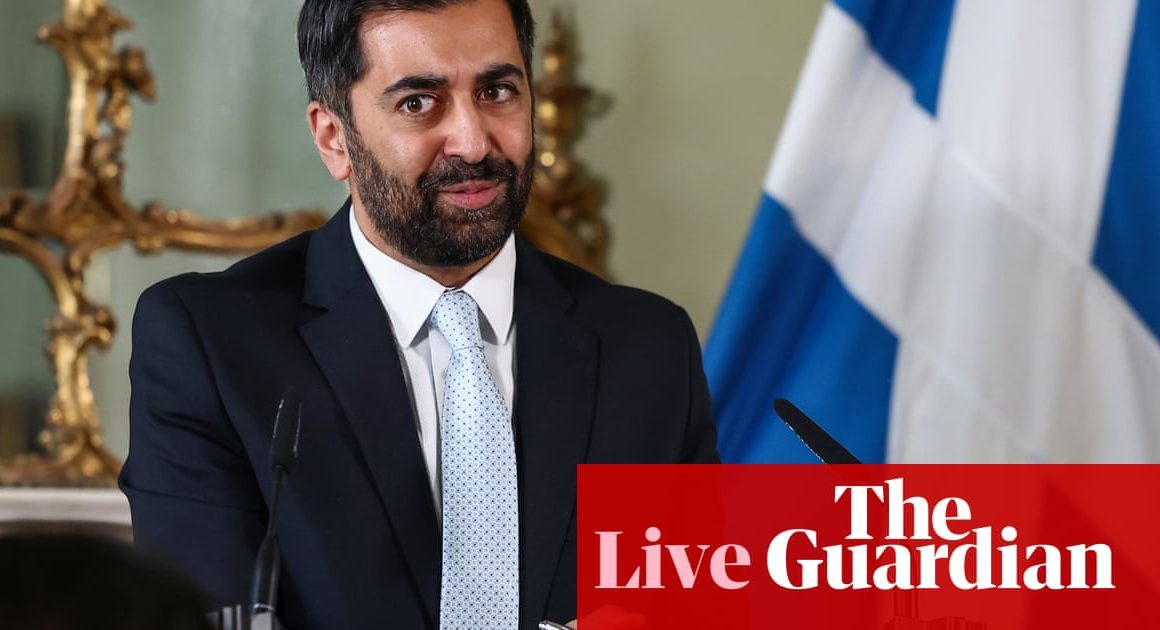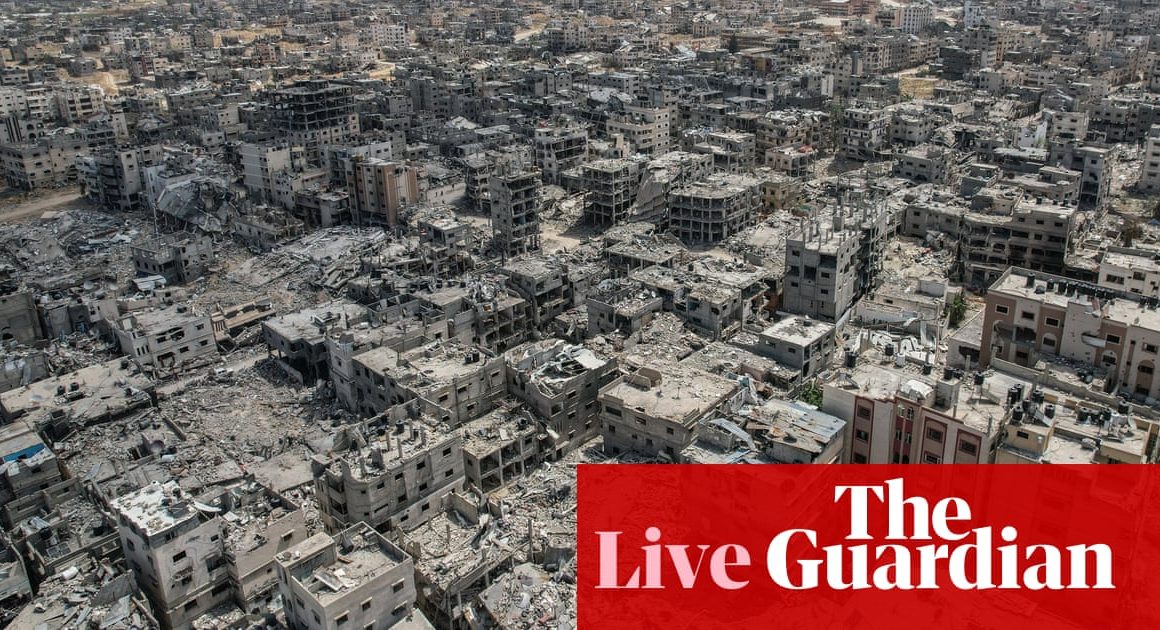The British foreign minister, David Cameron, has said it is clear Israel is âmaking a decision to actâ in response to last weekendâs Iranian mass drone and ballistic missile attack. He said he hoped this would be carried out in a way that minimised escalation.
He was speaking on Wednesday after meeting the Israeli president, Isaac Herzog, in Jerusalem, and is probably the first non-Israeli politician to admit that some kind of Israeli military reprisal is inevitable.
âItâs right to have made our views clear about what should happen next, but itâs clear the Israelis are making a decision to act,â Lord Cameron said. âWe hope they do so in a way that does as little to escalate this as possible.â
Cameron met Herzog alongside the German foreign minister, Annalena Baerbock, who was on her eighth visit to Israel since the Hamas attack on 7 October, in which 1,200 people were killed and 253 taken hostage, which prompted the Israeli offensive in Gaza that has so far killed an estimated 34,000 Palestinians.
Britain, in conjunction with the US and its European allies, has been pressing Israel not to mount a full-scale reprisal for Iranâs attack. Cameron has urged Israel to be governed by its head as well as its heart, and to regard the destruction of most of the Iranian missiles and drones directed at Israel over the weekend as a win.
He argued it was more important to focus on freeing the remaining hostages from Hamas, getting aid supplies to the Gaza Strip and achieving a ceasefire in the conflict. He said he wanted to press for this in talks with the Palestinian Authority. Rishi Sunak delivered a similar message by phone to Benjamin Netanyahu on Tuesday.
In a statement issued by Herzogâs office after the meeting, Herzog said the leadership in Tehran was endangering stability in the entire region with its actions.
âThe entire world must act decisively and defiantly against the threat to the Iranian regime,â the statement said.
Cameron is also due to meet the Israeli foreign affairs minister, Israel Katz, and will hold talks with Mohammad Mustafa, the prime minister of the Palestinian Authority.
One of the side-effects of the Iranian assault has been to reduce some of the pressure on Israel to do more to improve humanitarian aid flows into Gaza.
The UK remains deeply concerned that if the media and diplomatic pressure is eased, Israel may not fulfil its pledges given a fortnight ago to Joe Biden to allow in more aid through more crossings.
Iran has daily threatened a severe and major escalation if Israel does launch an attack, insisting it will provide no advance warning as it did over the weekend.
But officials admit Iranâs response will be calibrated according to Israelâs own attack, including whether it is directed on Iranian soil or instead seeks to attack Iranian assets in Syria and elsewhere. At the annual military parade in Tehran, the Iranian president, Ebrahim Raisi, warned Israel that even the âsmallest invasionâ by Israel would lead to a âmassive and harshâ reaction.
Iranâs attack last weekend had only limited targets, Raisi said, adding that a larger attack could hit Israel much harder.
The latest round of tit-for-tat violence broke out on 1 April when Israel killed seven Iranian commanders, including two Islamic Revolutionary Guard Corps (IRGC) generals, in Iranâs consulate in Damascus. Some Israeli sources have said the target was legitimate since the Iranians were using the building to mount attacks on Israel, thus losing the diplomatic immunity provided by the Vienna convention.
The US state department said on Tuesday it was still carrying out an investigation into whether the consulate was a diplomatic building or not. The US said it was relying on intelligence capabilities and allies on the ground to ascertain the true purpose of the building.
Cameron said he wanted to see coordinated sanctions against Iran, and that would be the key purpose of a G7 foreign ministersâ meeting starting formally on Thursday in Capri. He argued Iran must be âgiven a clear unequivocal messageâ over its support for Hamas, its Lebanon-based ally Hezbollah and Yemenâs Houthi rebels. âI hope that will happen at the meeting,â he said.
Iran is already probably the most heavily sanctioned country. The most effective way to further punish Iran would be to hit the Chinese banks and energy firms involved in importing Iranian oil, the single largest revenue earner for Tehran, but the Biden administration is reluctant to become embroiled in a sanctions war with China and does not want to see petrol prices rise in the midst of a presidential election.
Britain is also pressing Israel to realise that the nascent anti-Iranian sentiment in the Gulf states provides an opportunity for Israel to forge stronger links with Arab nations, so isolating Iran.
Tensions between Jordan and Iran have emerged over Jordanâs decision to knock out Iranian drones heading for Israel. It has also been reported that Egypt was still negotiating with Iran three hours before the attack was launched, saying it was seeking understandings from Israel over a ceasefire and an Israeli commitment not to attack Rafah.
Iranian diplomats insisted they wanted a UN security council statement condemning the Israeli attack on Iranâs consulate, but Washington rejected the proposal.
It was also reported in the Iranian media that it was the IRGC, and not the Iranian foreign ministry, that summoned the conduit for Iranian-US relations, the Swiss ambassador in Tehran, at 3am on Sunday to convey the message that Tehran was prepared to go further if the US intervened.











